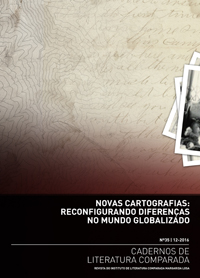Thinking through our Sisters, Acting through their Words
Palavras-chave:
Virginia Woolf, 'Three Guineas', Three Marias, 'New Portuguese Letters', Women in Black BelgradeResumo
This paper aims to demonstrate some points in common between Virginia Woolf’s ideas expounded in Three Guineas (1938) and the words of the Three Marias in New Portuguese Letters (1972) in order to reflect on their validity in today’s world. The themes of war, institutionalised discrimination against women and the general acceptance of systems of oppression will be addressed. Adopting a method Woolf herself used in her essay, I will refer to current newspaper stories, “history in the raw” (Woolf 2008: 159) to show how the world has/has not changed since these two pieces of work were published and how both can still be used to comment on reality in the 21st century in England, Portugal and other parts of the world as well. I will also refer to the work of Women in Black Belgrade, a group of Balkan activists born out of the war in the former Yugoslavia in 1991 and still at work today. Their work is used as the ultimate example of the need to think through our sisters, women writers, observers and critics of their society to reassess our own world today, to take responsibility and, thus, be better equipped to take action and operate change.


